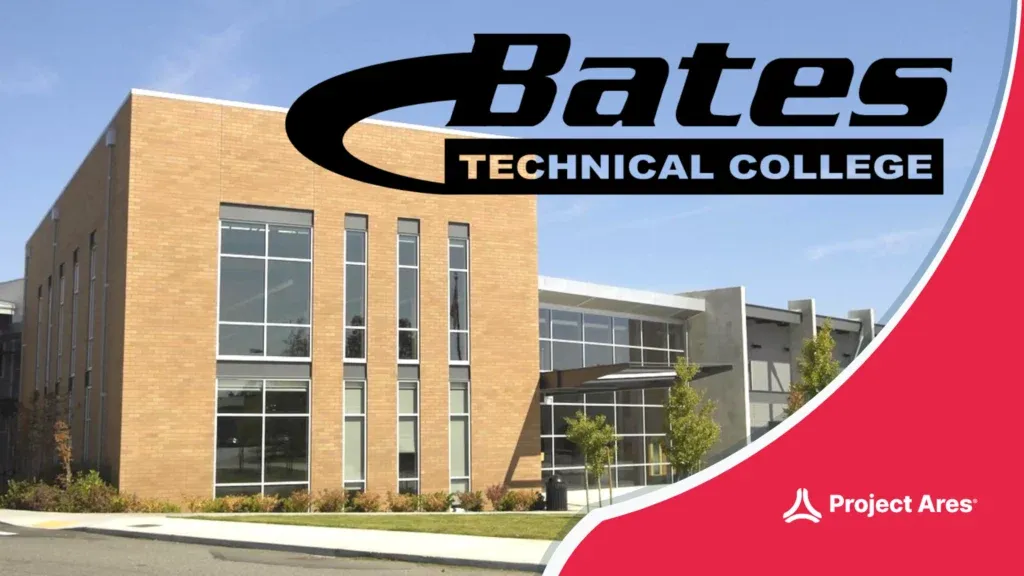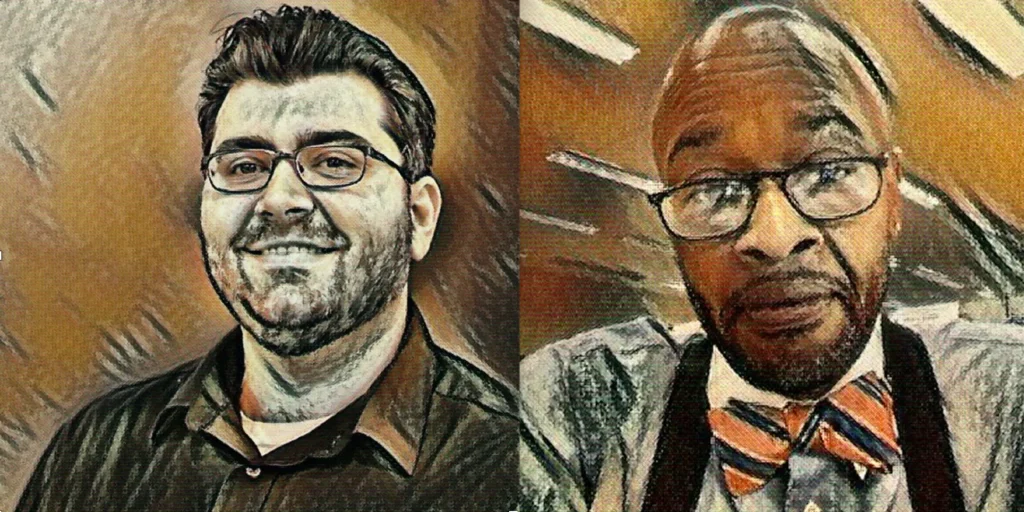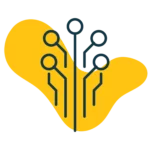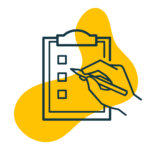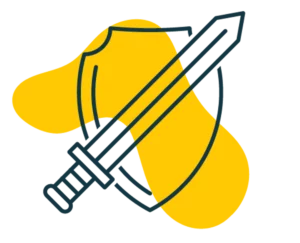Bates Technical College Empowers Students to Grow & Succeed
Bates Technical College, serving nearly 3,000 career training students and 10,000 community members on three campuses, has been helping students reach their education goals and nurturing talent since the 1940’s. As a leader in hands-on learning, Bates Tech mirrors the workplace, and provides students with opportunities to develop and practice the skills they need to be successful in job roles.
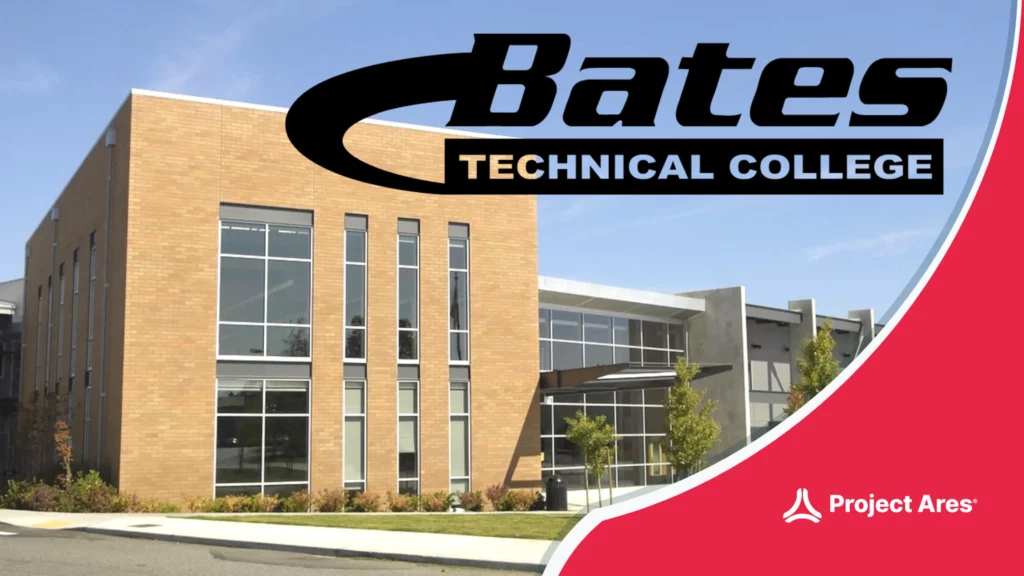
The community creates a space for students to achieve their personal and professional goals while focusing on the mission of enriching diverse communities by inspiring student learning, challenging greater achievement, and educating for employment.
Professor Joseph Kauer joined the Bates Tech team in 2019 to build a comprehensive and engaging cybersecurity program that was different from other programs in the region and would set the school apart. He started at the very beginning, setting up computers and creating a computer lab.
The cybersecurity program at Bates Tech has grown each year as more and more students see the many opportunities for skilled cybersecurity professionals in the workforce. As a Project Management oriented cybersecurity professional, Professor Kauer wants students to dive into the world of managing risks. The team at Bates Tech is focused on the expansion into subjects like forensic examination and cloud networking security. Students can actively pursue a two-year Associates of Science (AS) degree or take classes to earn transferable credits for a 4-year institution during their time at Bates Tech.
“The Cybersecurity program at Bates Tech champions diversity. I always tell my students that when you start surrounding yourself with ‘yes men,’ you will get no new ideas. You don’t find new ways to think about things inside of an echo chamber, so having a diverse field allows for critical thinking and creative thinking that encourages individual contributions.”
Joseph Kauer, Cybersecurity Professor, Bates Technical College
The Bates Technical College instructors envision success from a student perspective. Professor Kauer leans on his experiences as a student to help him create policies that are student-friendly and drive results. For example, they don’t use a hard stop when it comes to due dates for classwork; it’s accepted until the end of the quarter because Professor Kauer and his team believe that the work is important and want their students to take time to gain that valuable experience. The goal of this program is to create a relaxed environment that facilitates learning and collaboration.
The Bates Tech team takes pride in not just teaching hands-on technical skills needed to take on the jobs of the future but also in making sure that their graduates have the confidence to be influencers and leaders in their fields. There is a strong focus on professional networking, writing, and presentation skills because everyone is highly likely to work as part of a team in the cybersecurity field and needs to be effective communicators. When graduates from the Bates Tech program identify cyber risks or defensive solutions, they will also be ready to convincingly share ideas with their peers and leaders as truly effective cybersecurity professionals. Bates Technical College works to make sure that the program develops well-rounded future professionals who can navigate their careers and become leaders.
Professor Kauer and his team chose Project Ares as the platform for their labs to provide students with hands-on practice that reinforces the cybersecurity curriculum. Project Ares works on various machines from PCs to simple Chromebooks. This was key for easy access to learning tools for Bates Tech students and it enabled the instructors to push forward on their educational goals without worrying about equipment compatibility issues. Project Ares creates a common learning environment by launching virtual machines through a browser, thereby ensuring that all students are working in the same type of environment while enabling students to work at their own pace to complete labs.
Professor Kauer has seen his students benefit a great deal from the program as they see and experience the lessons that he’s teaching in a participatory manner. He can demonstrate how to execute Linux commands like ping and Nmap and then they go into Project Ares and continue to practice in an environment that emulates real computer systems. Students can execute commands and visualize how they’re executed in real time. The memorable, interactive experience of practicing with virtual machines is game changing.
Professor Kauer finds that students involved in immersive labs progress much more quickly. Students work together and collaborate on their assignments whether in a classroom or working from a remote location and easily use the chat function built into Project Ares. They enjoy themselves while using internal resources to solve problems. They learn how to accomplish their objectives, or they find any pieces of the lessons that they may have missed and then jump right back into their lab exercises.
“The virtual machine environment offered by Project Ares is excellent. This easily solves for the problem of not every student having the same hardware or software modules. We are able to place all of our students on an equal starting ground.”
Joseph Kauer, Cybersecurity Professor, Bates Technical College
Project Ares labs have equipped the instructors at Bates Technical College with cybersecurity learning tools that deploy easily for their student cohorts and don’t need to be manually setup by educators. This allows them to be free from the administration time needed to manage a homemade cyber range environment and they can reinvest that time into their student interactions.
Additionally, Bates Tech students are empowered by virtual lab environments since they don’t have to be afraid of failure in these scenarios. They have multiple chances to make corrections and adjust their work as they pursue their learning objectives. Bates Tech emphasizes that this is a learning experience and that Project Ares virtual environments give students the freedom to make mistakes in a safe environment.
“Our program aims to challenge students to start thinking outside of the box. In the beginning, we like to challenge students to think critically about new types of security exploits.”
Joseph Kauer, Cybersecurity Professor, Bates Technical College
From a philosophy of not only teaching skills but also preparing students for future careers, Professor Kauer and his team are successfully integrating hands-on learning through Project Ares into the cybersecurity program at Bates Technical College.

